As school districts and college conferences weigh returning to play in Georgia, an Emory University sports cardiology expert warned Thursday that student-athletes and schools need to be mindful about the risk of serious heart injury involved in COVID-19 infections.
The resumption of public school and college classes in Georgia this month has prompted growing concern among public health officials and advocates over a potential worsening spread of the coronavirus, while many state and local leaders have pressed for classes to be held with safety measures in place.
Top of the mind for many health experts and state officials is how to allow football and other sports competitions in the fall, both at the high school and college levels. Schools are grappling with locker-room restrictions and testing requirements to allow play in more controlled settings.
Dr. Jonathan Kim, Emory’s chief of sports cardiology and a member of the American College of Cardiology, noted early studies have shown around 20% of patients hospitalized for coronavirus have developed cardiac injuries, marking a much higher rate than the 1% of heart complications seen in typical hospital patients.
As a result, athletes and others with high-effort exercise regimens could be more susceptible during the pandemic to developing myocarditis, which causes inflammation of the heart muscle and can lead to serious injury or death, Kim said in a briefing Thursday. More data is needed to determine how often athletes have developed myocarditis specifically from COVID-19, Kim stressed.
It was one of the main reasons why many college conferences have decided to cancel sports this fall, with the hopes of playing a spring schedule.
“What we know is, if somebody has active myocarditis and they’re actively training (in) high-exertion physical activities, that can actually make the inflammation worse,” Kim said.
“When you have that inflammatory process within the heart muscle, if you are engaging in high-end physical activity, that could potentially precipitate dangerous heart rhythms (that) could lead to a cardiac arrest or a catastrophic outcome.”
Student-athletes and their families need to individually weigh whether picking up sports again in the fall is safe, while schools and other sports organizations should consider implementing heart-testing procedures like cardiograms, Kim said.
“I do think that lower-level sporting organizations — and really just looking at universities — (they) need to have the cardiac infrastructure in place,” Kim said.
He stopped short, however, of recommending that sports be canceled. That decision should be made by schools and sports leagues factoring in recommendations from public health experts, Kim said.
“I think that if an athlete were to choose not to participate for whatever the reason may be … I would respect that decision,” he said. “I think athletes who choose to pursue must have the trust that their public health concerns are clearly being monitored and addressed.”
Some leagues, including the Southeastern Conference with Georgia, the Atlantic Coast Conference with Georgia Tech and the Sun Belt Conference with Georgia State and Georgia Southern, are pressing forward with plans to play in the fall, while others, like the Big South Conference with Kennesaw State, have hit pause on the football season.
The Georgia High School Association is poised for a Sept. 4 start to the high school football season, with the chance that games could be postponed in the coming weeks, depending on virus infection rates.
The list of schools and districts with teams already deciding to cancel fall sports schedules is growing. Earlier this week, Calhoun County High School in south Georgia announced it would not play football because of the pandemic, while the Savannah-Chatham County Public Schools will be delaying the beginning of its fall sports schedules until Sept. 1, and its football schedules until Oct. 1. The district’s eight public-school football teams will only play intra-district games in 2020.
Georgia’s high school football season was originally supposed to kick off Friday.
On Wednesday, Gov. Brian Kemp urged college football conferences to resume games this fall, calling the sport “a sacred tradition” that should be played “if we can ensure the safety of players, coaches and staff.”
“Based on recent discussions with university leaders and sports officials, I am confident that they are putting the health and well-being of our athletes first,” Kemp said. “I commend the football community for working around the clock to incorporate public health guidance and appropriate protocols as they plan for the future.”
The governor’s stance was echoed by Georgia House Speaker David Ralston, R-Blue Ridge, who stressed the importance for student-athletes to play college football from both an economic standpoint and as the fulfillment of their long-time personal goals.
“Their goal of a lifetime is to play college football,” Ralston said in a radio interview Tuesday. “If they’re not playing, are they going to be any safer?
“We have to make the health of the student-athletes paramount, but there is an economic piece. It would be hard to imagine six or seven Saturdays in Athens this fall with no college football.”


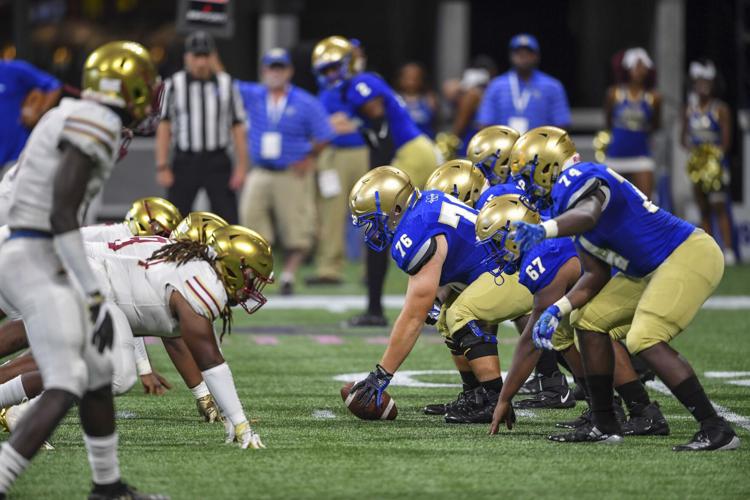
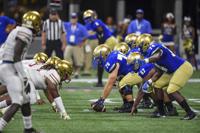
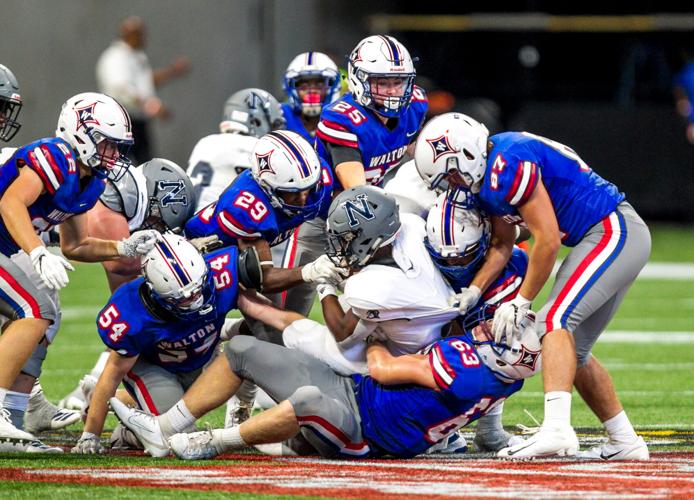
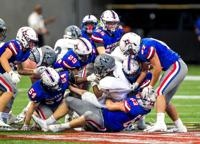

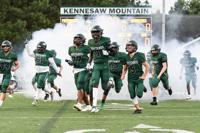






(0) comments
Welcome to the discussion.
Log In
Keep it Clean. Please avoid obscene, vulgar, lewd, racist or sexually-oriented language.
PLEASE TURN OFF YOUR CAPS LOCK.
Don't Threaten. Threats of harming another person will not be tolerated.
Be Truthful. Don't knowingly lie about anyone or anything.
Be Nice. No racism, sexism or any sort of -ism that is degrading to another person.
Be Proactive. Use the 'Report' link on each comment to let us know of abusive posts.
Share with Us. We'd love to hear eyewitness accounts, the history behind an article.